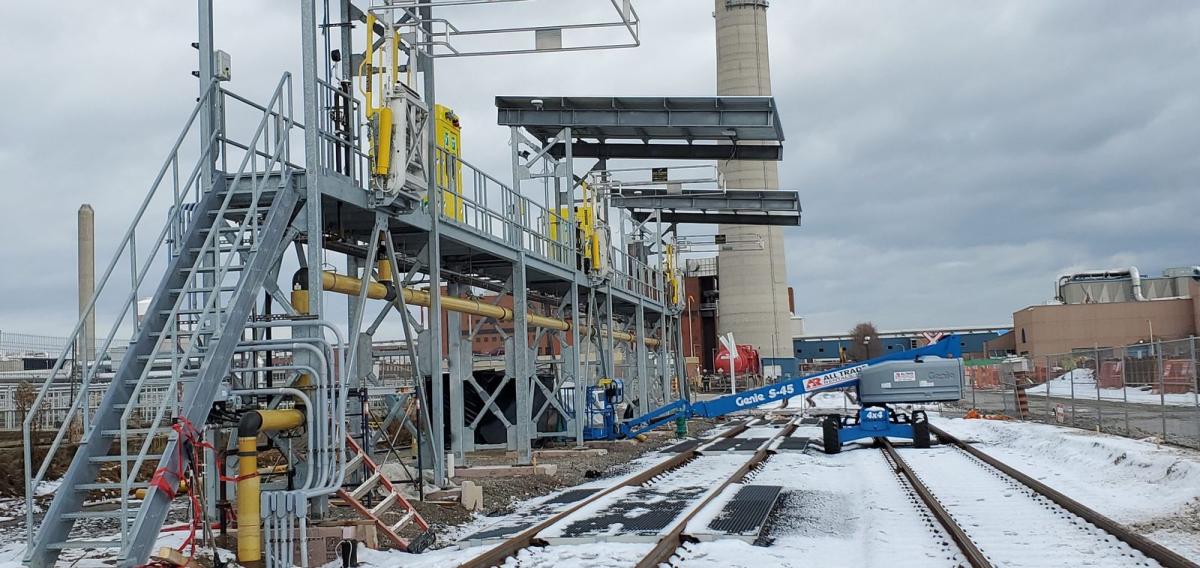The Role of Fiberglass-Reinforced Plastic (FRP) Piping in Chemical Processing Industries

In the demanding and highly specialized environment of chemical processing industries, selecting the right piping material is crucial. The choice directly impacts the safety, efficiency, and longevity of the entire system. Given the harsh conditions and the presence of corrosive substances, materials that can withstand these challenges are essential. Fiberglass-reinforced plastic (FRP) piping has emerged as a superior choice for handling corrosive chemicals, offering numerous advantages over traditional materials such as carbon and stainless steel, lined steel, expensive alloys and nonreinforced thermoplastics.
Chemical plants often deal with a variety of aggressive substances, including wastewater, concentrated brines, acids, bases, and solvents. Traditional materials tend to degrade under such conditions, leading to frequent maintenance, potential leaks, and system failures. FRP piping, however, is designed to eliminate corrosion-related failures and resists chemical attack, making it an ideal solution for these environments.
This blog delves into the pivotal role of fiberglass piping in chemical processing industries. We will explore how FRP piping meets the stringent demands of corrosive environments, and examine the overall benefits it brings to chemical plants. By understanding these advantages, industry professionals can make informed decisions that enhance the performance and reliability of their piping systems.
Outstanding Chemical Resistance
One of the primary reasons fiberglass piping is favoured in chemical processing industries is its exceptional resistance to corrosion. Traditional piping materials like carbon and stainless steel are prone to corrosion when exposed to harsh chemicals, leading to frequent maintenance, leaks, and system failures. In contrast, fiberglass piping is inherently resistant to a wide range of chemicals, including acids, alkalis, and solvents. This resistance ensures the integrity of the piping system, reducing the risk of leaks and extending its lifespan. Fiberglass piping also offers excellent external corrosion resistance due to its non-metallic structure, preventing problems caused by harsh environments inside and outside of chemical facilities. External corrosion under insulation caused by trapped moisture is eliminated.
Superior Structural Integrity
Fibreglass piping combines lightweight construction with high strength and durability thanks to its glass-reinforced structural wall. Its robust nature allows it to withstand high-pressure and high-temperature environments commonly found in chemical processing plants. Support spans are more similar to steel than they are to nonreinforced thermoplastics. This durability ensures that the piping system can handle the demanding conditions without compromising performance. Additionally, the lightweight nature of fiberglass piping simplifies installation and reduces labour costs, making it a cost-effective solution for chemical plants.
Ensuring Safety
Safety is paramount in chemical processing industries, and fibreglass piping excels in this aspect. Its non-conductive properties reduce the severity of galvanic corrosion by functioning as an electrical insulator, making it an especially good choice for use in systems with heat exchangers that use exotic alloys. Moreover, fiberglass piping does not corrode or deteriorate over time, reducing the likelihood of hazardous chemical spills. Fiberglass piping is a reliable choice for maintaining a secure and efficient chemical processing environment.
Cost-Effective Upkeep
The high resistance to corrosion and chemical attack means that fiberglass piping requires minimal maintenance compared to traditional materials. Chemical plants can benefit from reduced downtime and lower maintenance costs, as there is no need for frequent inspections, repairs, or replacements. This low maintenance requirement translates to increased operational efficiency and cost savings over the lifecycle of the piping system. Most of our piping systems are expected to provide trouble-free operation for decades when installed as part of a prudent design.
Versatile and Customizable
Fiberglass piping is highly versatile and can be customized to meet the specific needs of chemical processing applications. It can be fabricated in various diameters, lengths, and configurations to suit different plant layouts and process requirements. This flexibility allows for the creation of tailored solutions that optimize the efficiency and performance of the chemical processing system.
Eco-Friendly Solution
In addition to its functional advantages, fiberglass piping also offers environmental benefits. It is produced using less energy compared to traditional materials, resulting in a 30% reduction of carbon footprint in manufacturing when compared to metallic pipe. Furthermore, its long lifespan and minimal maintenance needs reduce the environmental impact associated with frequent replacements and repairs. This makes fiberglass piping an environmentally friendly choice for chemical processing industries aiming to meet sustainability goals.
Conclusion
Fiberglass piping plays a crucial role in the chemical processing industries, offering unmatched resistance to corrosion, high durability, enhanced safety features, and low maintenance requirements. Its versatility and environmental benefits further solidify its position as the ideal choice for handling corrosive chemicals in chemical plants. By choosing fiberglass piping, chemical processing industries can ensure a reliable, efficient, and cost-effective piping system that meets the demanding needs of their operations.
Contact us today to learn more about how fiberglass piping can benefit your chemical processing plant and ensure the success of your next project!